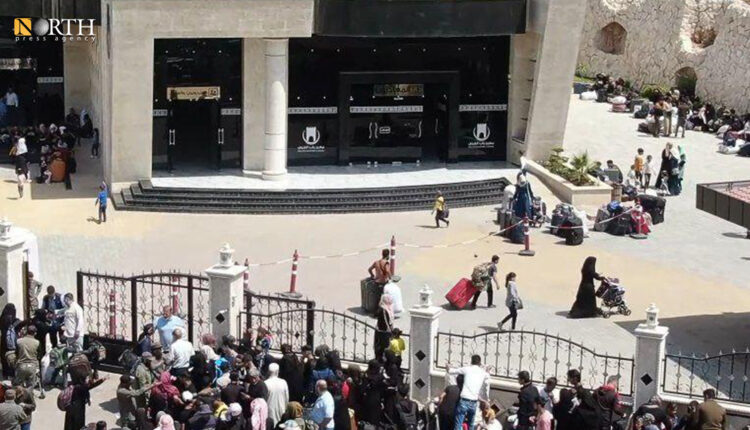Turkey Announces Return of 873,000 Syrian Refugees Amid Security Concerns
By Kardo Roj
ANKARA, Turkey (North Press) – Turkey has announced that 873,000 Syrian refugees have returned to Syria since the fall of the previous government, according to Turkish Vice President Cevdet Yılmaz. This development comes as Ankara accelerates its refugee repatriation program amid shifting domestic and regional policies.
Yılmaz’s statement follows an earlier announcement by Turkish President Recep Tayyip Erdoğan, who said over 133,000 Syrians had returned within the past three months alone. Turkish officials claim the process is voluntary, though concerns persist over the conditions awaiting returnees in Syria, particularly in opposition-held areas.
The return of Syrian refugees has become a key issue in Turkey’s domestic politics, with growing anti-refugee sentiment influencing government policy. Ankara has worked to facilitate returns through agreements with local factions controlling northern Syria, particularly in areas under the influence of the Turkish-backed Syrian National Army (SNA).
However, human rights organizations and Syrian activists have raised concerns about the safety and sustainability of these returns. Many returnees are sent to regions like Afrin, Ras al-Ain, and Idlib, where governance structures remain fragile, and security risks persist due to ongoing clashes between rival armed groups. Additionally, Hayat Tahrir al-Sham (HTS), an extremist faction designated as a terrorist organization by the UN, maintains control over parts of Idlib, raising further concerns about the fate of returnees.
In contrast, areas governed by the Autonomous Administration of North and East Syria (AANES) have maintained relative stability, with the Kurdish-led Syrian Democratic Forces (SDF) playing a central role in counterterrorism operations and internal security. Despite Turkey’s claims of establishing “safe zones” in northern Syria, independent reports indicate that many returning refugees face uncertainty, lack of basic services, and the risk of forced recruitment by local armed groups.
The United Nations High Commissioner for Refugees (UNHCR) has reported that while some Syrian refugees express a desire to return, the majority remain hesitant due to the absence of security guarantees, economic stability, and basic infrastructure. According to UNHCR chief Filippo Grandi, approximately 30% of Syrian refugees in the Middle East are considering returning next year, though conditions on the ground will heavily influence actual movements.
For AANES, the large-scale return of refugees to opposition-controlled regions raises concerns over potential security repercussions. Analysts warn that demographic changes and the reinforcement of Turkish-backed factions could lead to heightened tensions and further instability in northern Syria. The SDF has repeatedly emphasized the importance of maintaining security and countering threats posed by extremist factions operating in the region.
While Turkey insists that its repatriation program is creating a long-term solution to the refugee crisis, the future of these returnees remains uncertain. With northern Syria still divided among competing factions and international actors, the long-term stability of repatriated populations will depend on governance, security, and broader political agreements.

